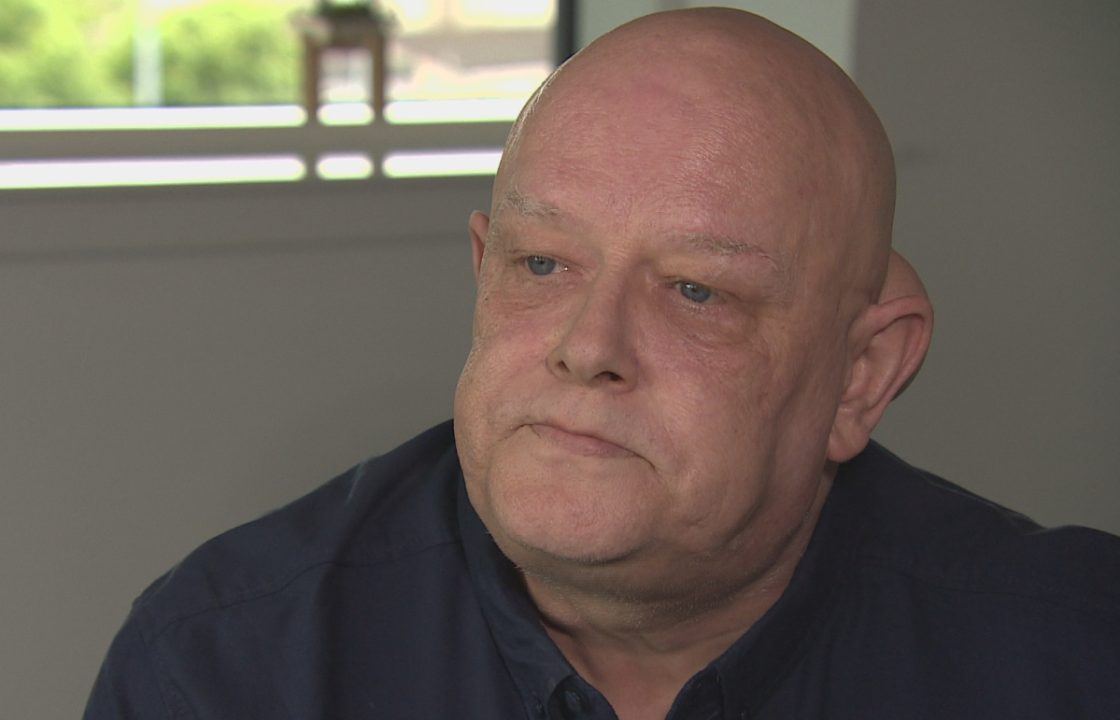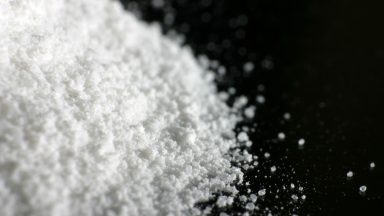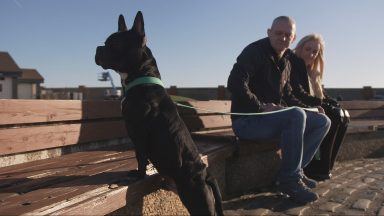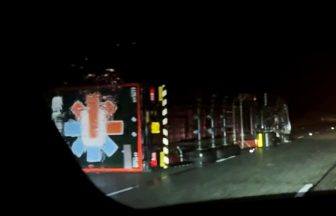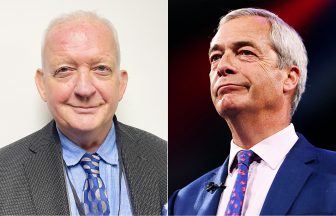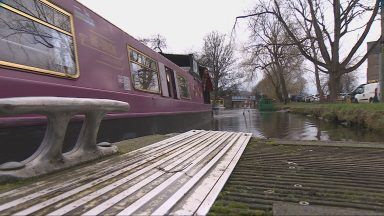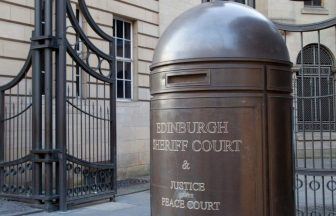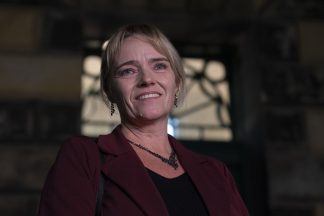Gordon Yuill still has nightmares about his son’s body lying undiscovered by the side of a motorway near Stirling almost a decade ago.
The 2015 crash that claimed the lives of John Yuill and his girlfriend Lamara Bell led to a fatal accident inquiry after the couple lay in their Renault Clio for three days before being found, despite police previously being alerted to the incident.
The crash and its aftermath sparked nine years of torment for Gordon, who says he is disappointed with the findings of the inquiry published on Friday.
“It was very difficult (hearing evidence),” he told STV News. “To hear the condition John’s body was in, when the farmer spoke about it, was gut-wrenching, I still have nightmares about the whole thing. I was in therapy for just under six years for PTSD.
“The strain that it put on the family was horrendous, it has been a hard, hard nine years.”
John and Ms Bell both died when their car left the M9 on July 5, 2015, as they drove back from a camping trip.
They were finally discovered three days later on July 8.
John, a father-of-five, was pronounced dead at the scene and Ms Bell, a mother-of-two, died four days later in hospital.
The inquiry heard John suffered unsurvivable injuries in the crash but Ms Bell would probably have survived if she had received medical treatment on July 5, albeit with a long-term neurological deficit.
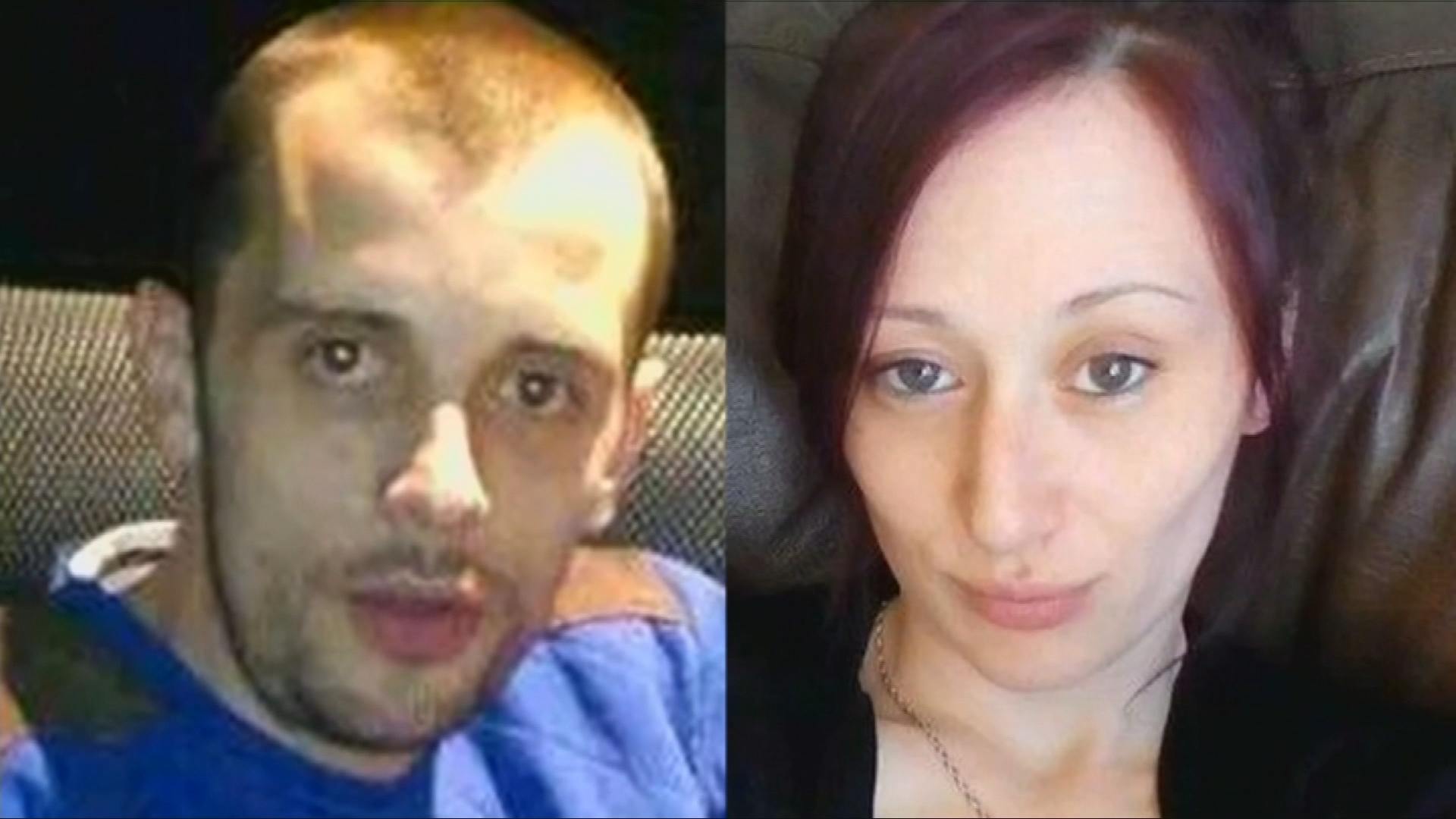 Police Scotland
Police ScotlandJohn held only a provisional license and had been smoking cannabis and drinking alcohol the evening before the crash.
A short distance away from the crash site, a speed camera picked up his car travelling at 91 miles per hour at around 5am. The blue Clio left the M9, careered down an embankment and smashed into a tree, which snapped at its base due to the force of the collision.
Mr Yuill accepts his son caused the accident but feels he was stripped of dignity in death by the events that followed.
He also says delays in holding a fatal accident inquiry added to the pain he suffered.
“I feel what we said legally wasn’t taken into consideration,” he said. “I believe some of it is flawed. I’m very surprised there’s no recommendations whatsoever and the only good thing about it is this is the end, this is it, it’s over.
“The last nine years have been horrendous.
“John was a fantastic child with a heart of gold, funny, didn’t take life too serious. I disagree with some people’s opinions of John because that’s not who he was. He made a terrible mistake and he paid a heavy, heavy price for that.
“Even from day one, we thought the accident happened on the Wednesday. In a normal situation, there would be the accident, you would mourn, you would bury and then move on.
“We weren’t allowed, we’ve never really mourned for John or Lamara because while his mum and I were identifying his body, the police informed us there seemed to be a report on Sunday of the car being off the road. We couldn’t get our heads around it, we couldn’t understand it.
“And then within a week we had PIRC (Police Investigation and Review Commissioner), we had other people coming to the house.
“It has been a horrendous journey. We as a family haven’t been able to grieve, there’s been a lot of intrusion into my life and our kids’ lives. I would never wish this on another family.”
What happened on the day of the crash?
Around 10am, or shortly thereafter, on Sunday July 5, 2015, farmer John Wilson spotted a blue car down the embankment. He called 101 at 11.28am and was connected to Police Sergeant Brian Henry, a call handler at Bilston Glen.
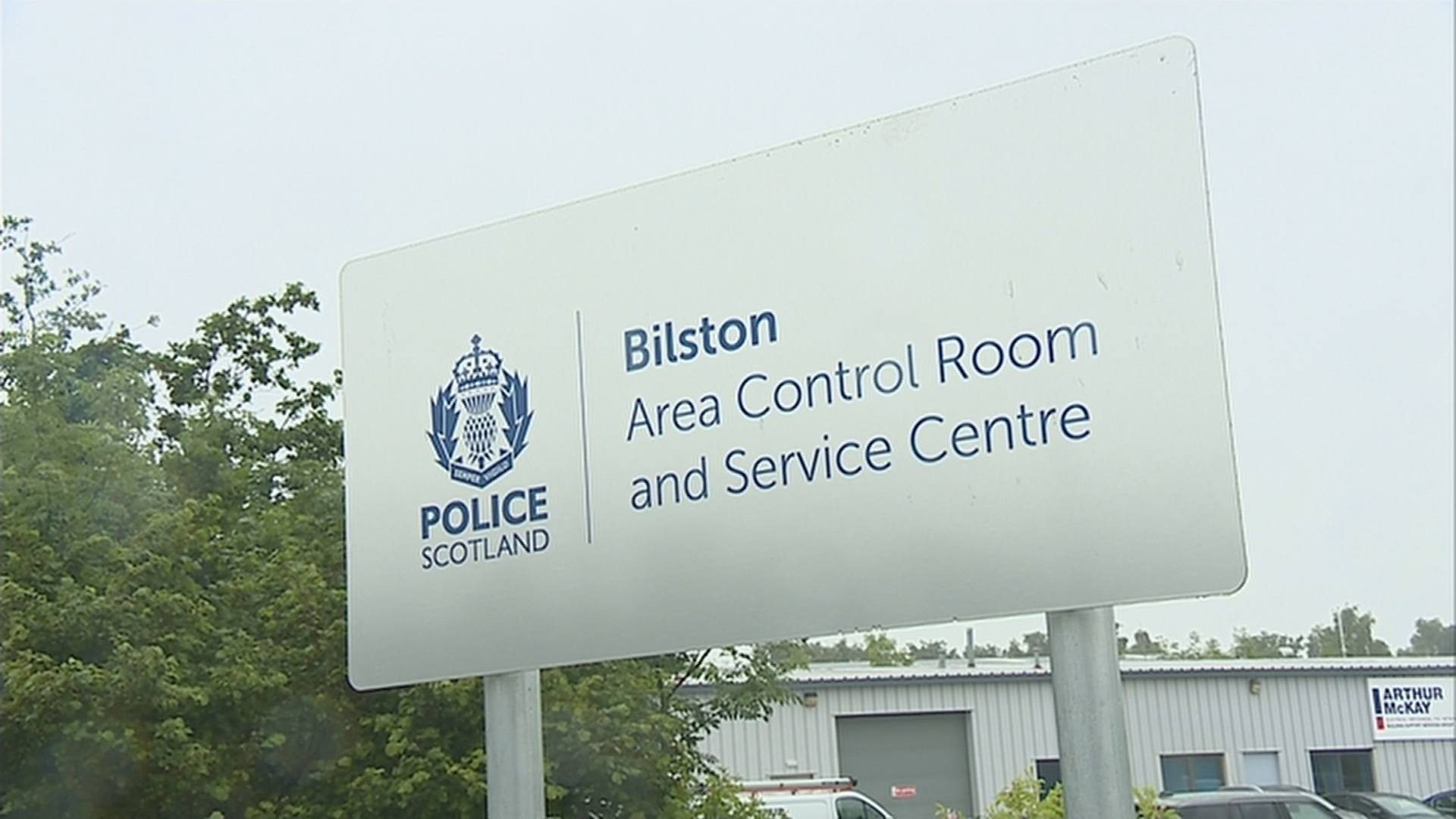 STV News
STV NewsThat call was a crucial element of the inquiry and played in court. Mr Wilson was asked if the accident had just happened. He replied hopefully not and that he couldn’t see any blue and white police tape.
The following is an excerpt of the telephone call between John Wilson (JW) and Brian Henry (BH).
BH – Okay right okay has it just happened?
JW – Well, I hopefully think not eh.
BH – Is there anyone with the vehicle just now?
JW – No no.
BH – It may well be that we have a report of this but I’ll take some details.
JW – It’s just there was no kinda police tape or anything like that.
BH – Normally yeah we tend to put up a notice up to say we are aware of it. Emm okay. Do you know which junction you are near?
The sergeant ended the call by telling Mr Wilson that officers would check it out but Mr Henry didn’t log his notes from the call onto the official system.
Mr Henry told the inquiry he has been tortured since the accident. The sheriff described his apology directly to the families as “genuine and heartfelt”.
Ultimately he was unable to provide an explanation for his actions, beyond simple human error.
Mr Henry said he had assumed the car may have been there for some time and the absence of police tape was not a red flag. From the evidence available to him, he assumed the car had been abandoned – that, he said, was his default setting.
Car still not discovered three days after the accident
Over the next two days, Mr Wilson saw skidmarks on the road and saw the car was still on the embankment.
Mr Wilson called Police Scotland on 101 at 10.52am on July 8, 2015, and spoke with a call handler. He told the handler that he had reported the same car off the road on Sunday and was extremely upset and incredulous that his first call had not been acted upon.
That call set in motion the wider investigation.
Another farmer called Robert Findlay saw the blue Clio at around 9.30am on Wednesday, July 8 and decided to investigate.
Approaching the vehicle, he saw John dead in the drivers seat and Ms Bell in the passenger seat. He called 999.
He returned to the blue Clio to comfort Ms Bell. But she became more distressed and disorientated by his presence so he returned to the hard shoulder of the M9 to await and direct the emergency services to her.
Mr Findlay told the inquiry that Ms Bell was conscious and said to him ‘help me, get me out’.
Meanwhile, Mr travelled to the crash site on Wednesday to witness developments when he was told a helicopter and emergency services were at the crash site.
He realised someone in the vehicle must be alive, telling the inquiry that his blood was boiling at that moment.
Sheriff James Williamson described Mr Wilson as an example of someone who had his confidence and trust in Police Scotland eroded as a result of this experience.
The inquiry was told the service in 2015 was in a state of disarray due a lack of staff.
Following a site inspection to Bilston Glen call centre in Midlothian, Mr Williamson concluded: “The call handling systems in place in 2024 is incomparable to that operated in 2015.
“It is not risk free. It still has a susceptibility to human failure but the risk of human failure and that failure going undetected is now marginal.”
Call handlers today are armed with more information and better systems to use better prompts than in 2015.
The inquiry heard a risk assessment is now carried out when a member of the public calls – a process that did not exist when Mr Henry took the initial call.
Ms Bell’s family awarded more than £1m in damages
The family of Ms Bell was awarded more than £1m in damages from Police Scotland in a civil settlement in December 2021.
In September 2021, the force was fined £100,000 at the High Court in Edinburgh after it pleaded guilty to health and safety failings which “materially contributed” to Ms Bell’s death.
Mr Williamson said Ms Bell’s suffering over a period of three days, when she was severely injured but conscious, is “almost incomprehensible”.
It has taken almost nine years to reach this conclusion. The Crown says the criminal investigation was complex but acknowledges delays in holding a fatal accident inquiry will have had an impact on the families.
Police Federation says control rooms under pressure
Police Scotland has repeated its apology to the families and say its call handling systems are significantly improved and incomparable to what was in place in 2015.
But David Kennedy, general secretary of the Scottish Police Federation, said police control rooms are under even more stress than ever.
“We recently did a deep dive at the end of last year that showed us that,” he told STV News.
“Officers within control rooms told us that they simply don’t want to be there because the pressure that they are under. Our concern is with the lack of police officers, the pressure that they are under , that mistakes could happen again.
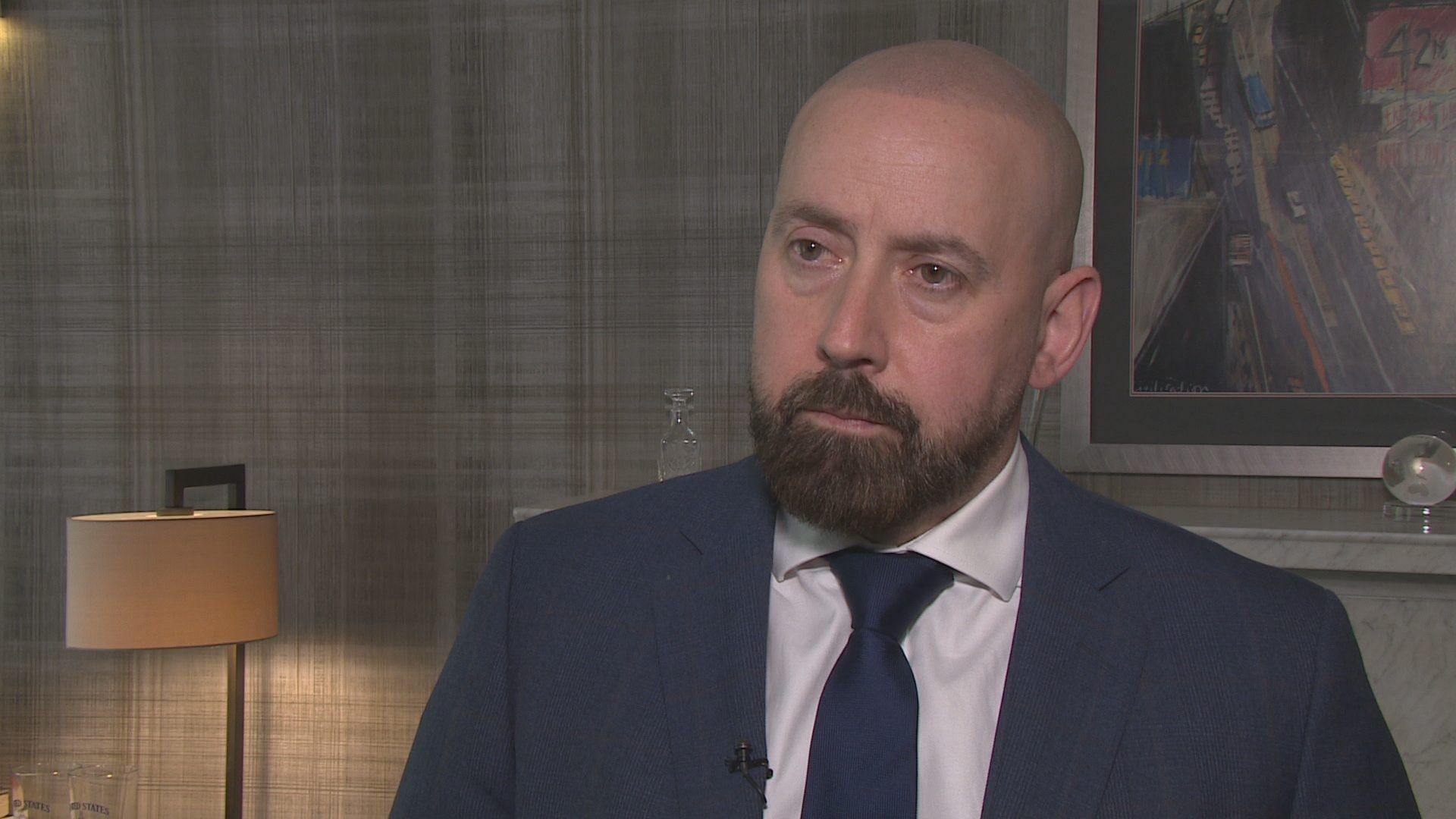 STV News
STV News“The current system does work on a good level but currently we have backfill happening, officers working on their rest days and all of that leads to fatigue.
“Our biggest concern is that this leads to mistakes being made. At the moment, we are not attending calls where someone’s shed has been broken into.
“If you look back at the original call that came in for this, it wasn’t a case of two people within a vehicle and an accident had happened. It was for an abandoned car. The concern is that this could happen again.
“I don’t believe the police service at this time can give reassurances due to the lack of police numbers and the tight financial constraints they are under. The police need a system in place that is human error proof but the problem we have now is that officers are under.”
Follow STV News on WhatsApp
Scan the QR code on your mobile device for all the latest news from around the country


